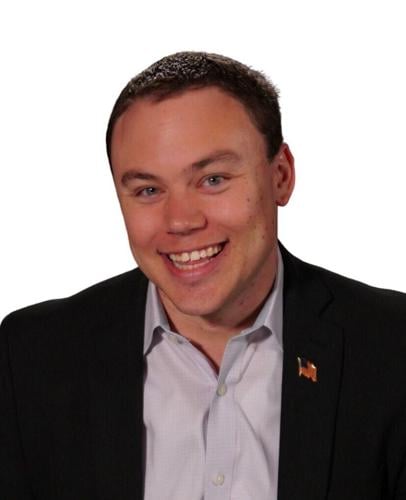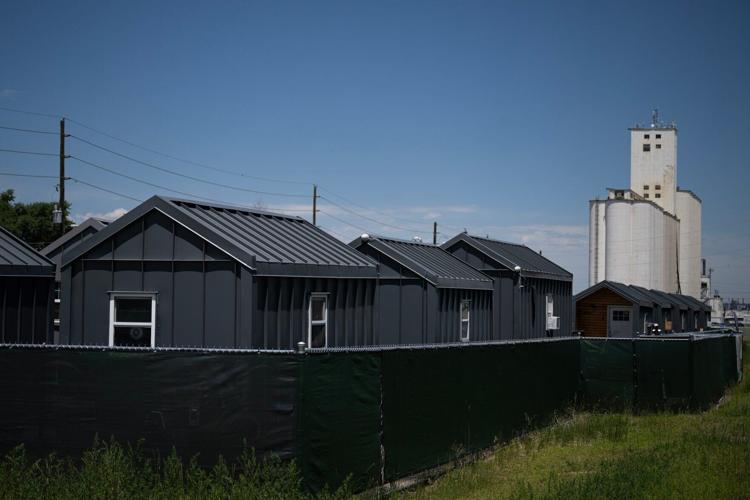COLUMN: Denver micro-community a ‘nightmare’ for Dwayne Peterson | Jimmy Sengenberger
In the heart of our burgeoning homelessness crisis, Dwayne Peterson stands as a sentinel on the streets — a homeless man whose life illustrates the cracks in Denver’s ambitious campaign to shelter the unhoused.
As stereotypes go, Peterson breaks the “homeless guy” mold. He’s an erudite CU-Boulder graduate, former law firm employee and dance instructor, and an articulate advocate for himself who maintains sobriety and lacks a debilitating mental health condition or criminal record.
“I’m literally, figuratively and emotionally exhausted,” the cancer diagnosee confided.
From a micro-community of single-room tiny homes to the unforgiving streets of Denver, Peterson’s journey exposes the pitfalls of freshman Mayor Mike Johnston’s grand “House1000” plan, a sweeping initiative spearheaded by 35-year-old Cole Chandler.
Before the mayor appointed him Denver’s homelessness czar, Chandler helped pioneer Denver’s tiny home villages and “Safe Outdoor Spaces” as executive director of the nonprofit Colorado Village Collaborative (CVC).
Peterson, who turns 60 next month, became homeless in 2018. From February 2020 to February 2022, he resided in one of CVC’s villages, Beloved Community Village. He said it was a “nightmare.”
“I do not see tiny homes or tiny rooms as ‘dignified.’ They’re still (just) shelter,” Peterson lamented, noting basic services like building maintenance are often lacking. “There’s a lot of people who don’t want to go to these shelters or micro-communities because they still feel like they’re vulnerable.”
That reality belies the fleeting promise of being permanently rehoused, he said — sentiments echoed by Colorado civil rights attorney Andy McNulty.
“There is no pathway to permanent housing,” McNulty told NBC News. “You can’t just put people in hotel rooms and expect to solve the problem.”
“Don’t call it housing,” Peterson stressed. “Call it sheltering 1,000. Call it what it really is.”
Amid Johnston’s $45 million, six-month blitz to shelter 1,000 individuals — with another 1,000-person target for 2024 — Peterson still chooses the frigid streets over the supposed safety of village or hotel life.
“It was a blizzard the day I left. I think it was -6 degrees,” Peterson recounts. “I feel safer in this weather than I did at Beloved. I left because I did not feel safe.”
Peterson, who is Black, reports personal accounts of racial harassment and being threatened with a gun — as well as personally making 50-plus police calls — while he resided at Beloved.
Since he left, a 911 call log reveals that, from May 2022 through November 2023, at least 34 calls were made to police about Beloved — ranging from noise complaints and welfare check requests to assaults, trespassing, burglary, narcotics, shots fired and threats.
Peterson recalled other village residents falling prey to property destruction, theft and a stabbing, with at least one resident tearing apart their own tiny home with witnesses. He accused Chandler of frequently failing to respond to or act on reported incidents and rarely being on-site.
Peterson’s alarming allegations shed light on the dark side of micro-communities. Some incidents are backed by documentation or communication records.
My multiple emails to Chandler, inquiring about Peterson’s accounts and city policies, have gone unanswered, making it harder to assess Peterson’s claims. Yet, if even a fraction is verifiable, his extensive allegations offer a basis for concern about the programs overseen by Chandler.
As Chandler’s models are replicated citywide — expected to cost $143 million more this year — the risk of recurring problems escalates. It raises critical questions about the “housing first” approach and its rejection of personal accountability and standards for behavior. “Housing first” doesn’t require rehab for addiction or treatment for mental illness.
On my 710KNUS show last February, Johnston acknowledged many homeless individuals face addiction and mental health challenges. They may also possess criminal records.
Yet, as Peterson observed, the city paradoxically funnels them into micro-communities without ensuring their underlying issues are addressed or implementing any screening measures or sobriety requirements.
“I think there’s a lot of enabling going on,” he said.
Let’s be real: Simply making “wraparound” services available (mental-health care, workforce training, substance abuse treatment, etc.) isn’t sufficient. By clustering diverse populations with complex needs at an unprecedented clip, the city generates potentially unsafe environments — allowing a volatile mix of individuals to coexist without definitively addressing underlying causes.
Converting hotels like the Embassy Suites in southeast Denver into shelters and expanding tiny home villages could trigger unintended consequences and magnify circumstances that mirror Peterson’s accounts on a greater scale. Ensuring residents’ safety and well-being — not to mention transparency on complaints and prompt mechanisms for redressing grievances — becomes increasingly paramount.
Peterson’s account suggest the city is subsidizing bad behavior. The rush to meet self-imposed deadlines, born of campaign promises, risks impeding comprehensive strategies for tackling long-term homelessness at its roots — from housing affordability to substance abuse, mental health and crime.
The urgency to address the crisis of homelessness on our streets is evident, with at least 311 homeless deaths in Denver last year. Yet, Peterson’s cautionary tale makes a case for City Hall to pause and reassess its strategy.
Jimmy Sengenberger is an investigative journalist, public speaker, and host of “The Jimmy Sengenberger Show” Saturdays from 7 a.m. to 10 a.m. on News/Talk 710 KNUS. Reach Jimmy online at Jimmysengenberger.com or on X (formerly Twitter) @SengCenter.






